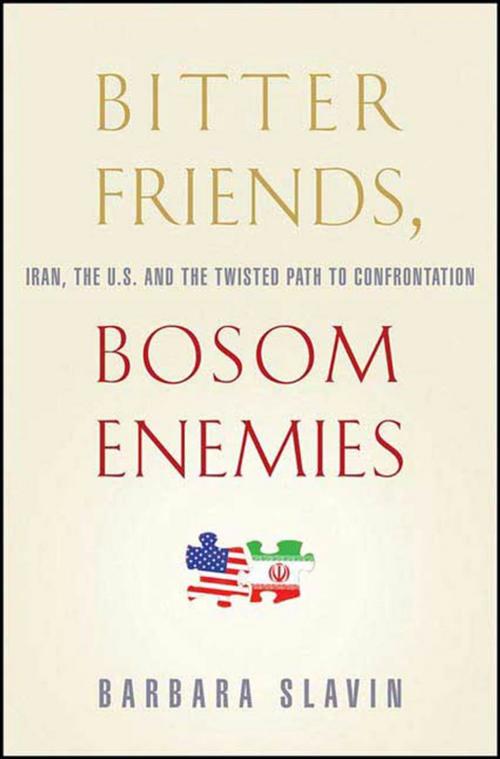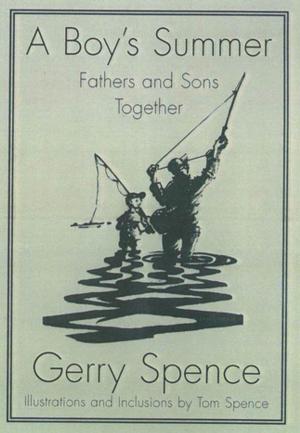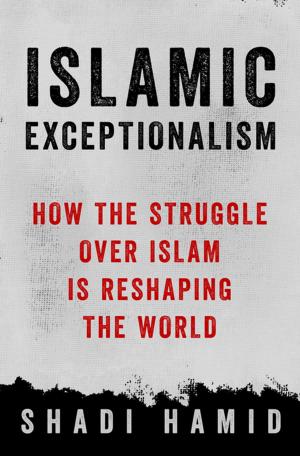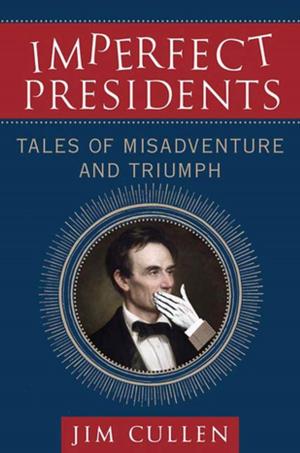Bitter Friends, Bosom Enemies
Iran, the U.S., and the Twisted Path to Confrontation
Nonfiction, Social & Cultural Studies, Political Science, International, International Relations| Author: | Barbara Slavin | ISBN: | 9781466803220 |
| Publisher: | St. Martin's Press | Publication: | January 6, 2009 |
| Imprint: | St. Martin's Press | Language: | English |
| Author: | Barbara Slavin |
| ISBN: | 9781466803220 |
| Publisher: | St. Martin's Press |
| Publication: | January 6, 2009 |
| Imprint: | St. Martin's Press |
| Language: | English |
With lucid analysis and engaging storytelling, USA Today senior diplomatic correspondent Barbara Slavin portrays the complex love-hate relationship between Iran and the United States. She takes into account deeply imbedded cultural habits and political goals to illuminate a struggle that promises to remain a headline story over the next decade. In this fascinating look, Slavin provides details of thwarted efforts at reconciliation under both the Clinton and Bush presidencies and opportunities rebuffed by the Bush administration in its belief that invading Iraq would somehow weaken Iran's Islamic government. Yet despite the dire situation in Iraq, the Bush administration appears to be building a case for confrontation with Iran based on the same three issues it used against Saddam Hussein's regime: weapons of mass destruction, support for terrorism, and repression of human rights. The U.S. charges Iran is supporting terrorists inside and outside Iraq and is repressing its own people who, in the words of U.S. officials, "deserve better." Slavin believes the U.S. government may be suffering from the same lack of understanding and foresight that led it into prolonged warfare in Iraq.
One of the few reporters to interview Iranian president, Mahmoud Ahmadinejad, as well as his two predecessors and scores of ordinary Iranians, Slavin gives insight into what the U.S. government may not be taking into account. She portrays Iran as a country that both adores and fears America and has a deeply rooted sense of its own historical and regional importance. Despite government propaganda that portrays the U.S. as the "Great Satan," many Iranians have come to idolize staples of American pop culture while clinging to their own traditions. This is clearly not a relationship to be taken a face value. The interplay between the U.S. and Iran will only grow more complex as Iran moves toward becoming a nuclear power. Distrustful of each other's intentions yet longing at some level to reconcile, neither Tehran nor Washington know how this story will end.
With lucid analysis and engaging storytelling, USA Today senior diplomatic correspondent Barbara Slavin portrays the complex love-hate relationship between Iran and the United States. She takes into account deeply imbedded cultural habits and political goals to illuminate a struggle that promises to remain a headline story over the next decade. In this fascinating look, Slavin provides details of thwarted efforts at reconciliation under both the Clinton and Bush presidencies and opportunities rebuffed by the Bush administration in its belief that invading Iraq would somehow weaken Iran's Islamic government. Yet despite the dire situation in Iraq, the Bush administration appears to be building a case for confrontation with Iran based on the same three issues it used against Saddam Hussein's regime: weapons of mass destruction, support for terrorism, and repression of human rights. The U.S. charges Iran is supporting terrorists inside and outside Iraq and is repressing its own people who, in the words of U.S. officials, "deserve better." Slavin believes the U.S. government may be suffering from the same lack of understanding and foresight that led it into prolonged warfare in Iraq.
One of the few reporters to interview Iranian president, Mahmoud Ahmadinejad, as well as his two predecessors and scores of ordinary Iranians, Slavin gives insight into what the U.S. government may not be taking into account. She portrays Iran as a country that both adores and fears America and has a deeply rooted sense of its own historical and regional importance. Despite government propaganda that portrays the U.S. as the "Great Satan," many Iranians have come to idolize staples of American pop culture while clinging to their own traditions. This is clearly not a relationship to be taken a face value. The interplay between the U.S. and Iran will only grow more complex as Iran moves toward becoming a nuclear power. Distrustful of each other's intentions yet longing at some level to reconcile, neither Tehran nor Washington know how this story will end.















